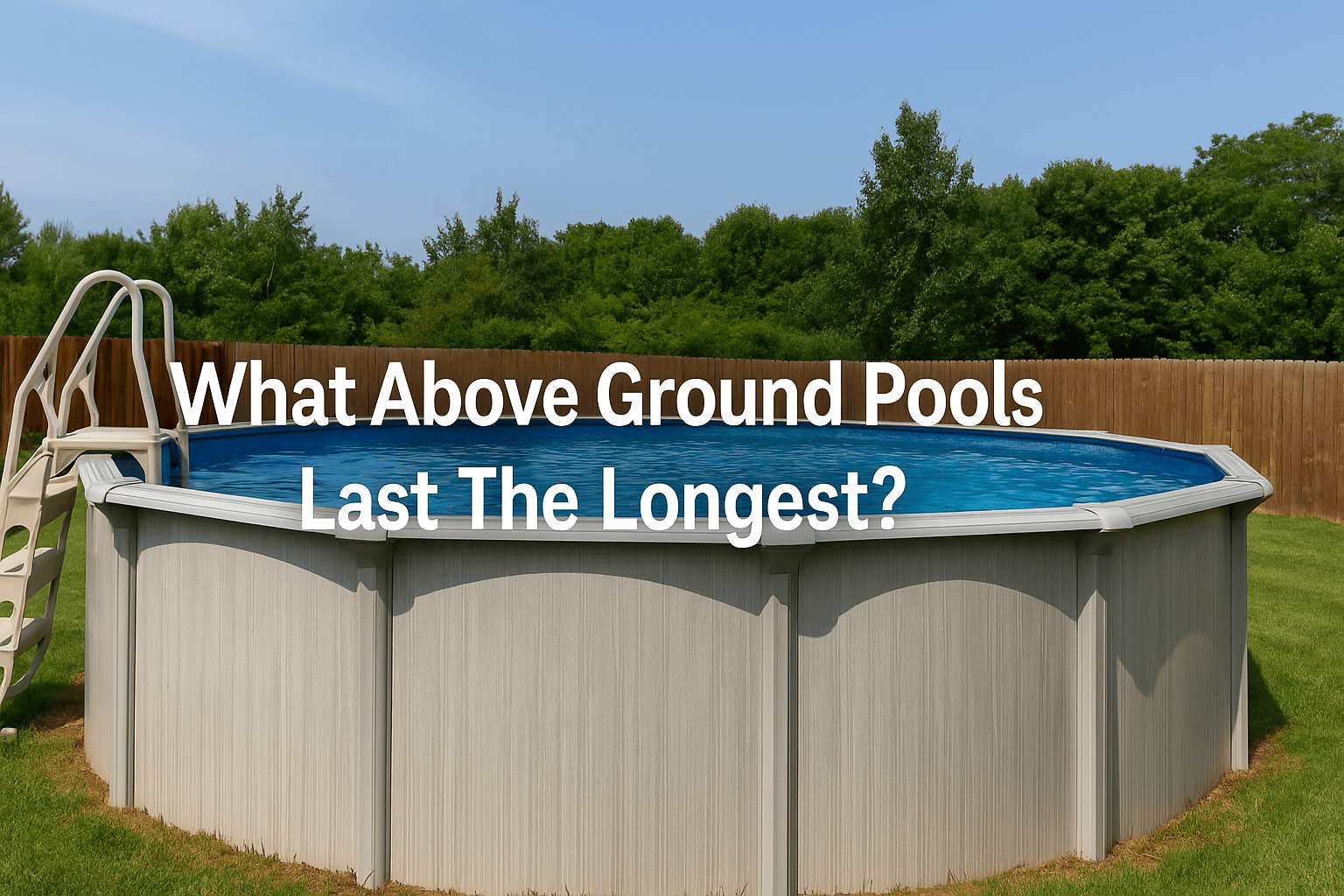
What Above Ground Pools Last The Longest?
Sick of replacing your above ground container pool every couple of summers? You're not alone. If you've ever dealt with rusting frames, saggy liners or a pool that looked more like a puddle by autumn, this one's for you.
The short answer? Aluminium-framed and container-style pools last the longest. They're tough, rust-proof, and built for the long haul — perfect for British weather and boisterous kids alike. Stick around to find out which materials really hold up, plus practical tips to help your pool go the distance.
The Top-Tier Choices for Longevity
Resin Pools: The rust-proof and corrosion-resistant option.
Resin pools are the savvy parent’s pick. They don’t rust, shrug off UV rays, and handle whatever the great British summer throws at them. Think of them like the wellies of the pool world — reliable in all weathers.
Advantages
-
Won’t corrode, fade, or fall apart in the sun
-
Often backed by generous warranties — some as long as 20 years
Disadvantages
-
Not the cheapest option on the market
-
In very cold areas, some cheaper models can become brittle (yep, just like frozen biscuits)

Hybrid Pools: The best of both worlds.
Can’t decide between strength and rust-resistance? Go hybrid. These clever combos use steel for muscle and resin for protection. It’s like having a bodybuilder in a raincoat — strong and covered.
A combination of steel walls for strength and resin components for corrosion resistance.
-
Offers a solid structure with fewer rust worries — smart and sturdy.
Aluminium Pools: A durable, rust-resistant alternative.
Aluminium pools are the quiet champions. Lightweight, easy to install, and they laugh in the face of corrosion. If you want a pool that just gets on with it, year after year, aluminium’s your mate.
Known for being lightweight and easy to install, with high corrosion resistance.
-
With a bit of TLC, many last over 20 years — that’s longer than most family cars.
Pools with a Shorter, But Still Durable Lifespan
Steel Pools: The most common and affordable option.
Steel pools are the go-to for many families starting out. They’re tough as nails — but only if you look after them. Leave one exposed to the elements and it’ll rust faster than an old BBQ.
Strong and sturdy, but susceptible to rust and corrosion without proper maintenance.
-
Lifespan really depends on good coatings and regular care — think fence paint, but for pools.
Soft-Sided/Inflatable Pools: The temporary, seasonal option.
These are the paddling pools’ bigger cousins. Easy to set up, fun for a season, but don’t expect them to hang around for long. Perfect if you’re renting or just want something for the summer holidays.
Not designed for year-round use; typically last 1–3 seasons.
-
Easily punctured, and sun damage is a real issue — especially if your garden’s a sun trap.

Factors That Determine How Long Your Pool Lasts
The Critical Role of Maintenance
Regular Water Chemistry Balancing (Prevents Corrosion and Liner Damage)
Don’t ignore your water. If the pH or chlorine is off, your pool parts will pay the price. Poor chemistry can eat away at liners and metal fittings — like giving your pool a slow, invisible leak.
Proper Winterization (Prevents Freeze Damage and Rust)
Winter can be brutal. Draining and covering your pool properly before the first frost hits can save you a fortune come spring. Skip this step and you might wake up to cracked walls or rusty joints.
Consistent Cleaning and Inspection for Wear and Tear
Leaves, dirt, and sharp bits — they’re not just unsightly, they’re damaging. A quick clean and inspection every week can stop small problems turning into major repairs.
Quality of Installation
Ensuring a Level and Stable Base from the Start
If your pool starts off lopsided, it’s downhill from there. Uneven ground puts pressure on certain areas and can cause warping or sagging. Use a spirit level. Trust us.
Following Manufacturer Instructions to a T
It’s boring, but it works. Read the manual. Every brand’s slightly different, and doing things your way could void the warranty or cause leaks.
Correctly Installing All Frame and Wall Components
Missing a bolt might not seem like a big deal... until it is. Double-check everything. A fully secured frame lasts longer and handles stress better.

Environmental Impact and Usage
Climate (Salt-heavy air, humidity, intense sun)
Live by the coast? Your pool's going to face salt air and more humidity. Go for corrosion-resistant materials like resin or aluminium if your garden gets the seaside treatment.
Type of Water (Saltwater vs. Chlorine)
Saltwater’s kinder on the skin and eyes, but it’s rough on metal parts. If you go salty, make sure your pool is built to handle it.
Frequency and Intensity of Pool Use
The more the pool gets used, the more wear and tear it’ll show. Daily summer dips? Great memories — but more cleaning, checks, and top-ups too.
Final thought: Choose wisely, treat your pool kindly, and it’ll stick around for years. Whether it’s a steel starter or a 20-year aluminium investment, the right setup turns your garden into a splash-worthy summer haven.
Have you checked out our other posts?
How Long Do Above Ground Pools Last?



Leave a comment